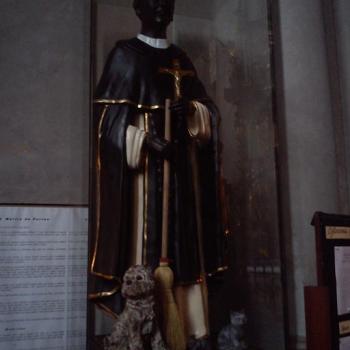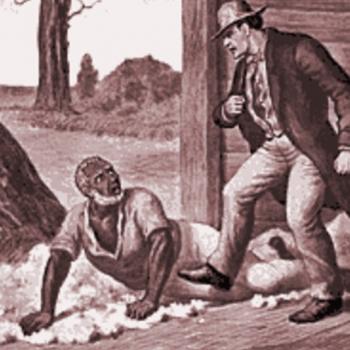 To commemorate Martin Luther King, Jr. Day, here are two passages from Church documents on his life and work. The first is taken from Pope John Paul II’s address at the Meeting with the Black Catholic Community of New Orleans in 1987. The second is taken from the Letter to National Committees for the Year 1998, The Holy Spirit and Ecumenism, drafted by the Ecumenical Commission of the Central Committee of the Great Jubilee Year 2000.
To commemorate Martin Luther King, Jr. Day, here are two passages from Church documents on his life and work. The first is taken from Pope John Paul II’s address at the Meeting with the Black Catholic Community of New Orleans in 1987. The second is taken from the Letter to National Committees for the Year 1998, The Holy Spirit and Ecumenism, drafted by the Ecumenical Commission of the Central Committee of the Great Jubilee Year 2000.
“Even in this wealthy nation, committed by its Founding Fathers to the dignity and equality of all persons, the black community suffers a disproportionate share of economic deprivation. Far too many of your young people receive less than an equal opportunity for a quality education and for gainful employment. The Church must continue to join her efforts with the efforts of others who are working to correct all imbalances and disorders of a social nature. Indeed, the Church can never remain silent in the face of injustice, wherever it is clearly present.
In the most difficult hours of your struggle for civil rights amidst discrimination and oppression, God himself guided your steps  along the way of peace. Before the witness of history the response of non-violence stands, in the memory of this nation, as a monument of honour to the black community of the United States. Today as we recall those who with Christian vision opted for non-violence as the only truly effective approach for ensuring and safeguarding human dignity, we cannot but think of the Reverend Dr Martin Luther King, Jr, and of the providential role he played in contributing to the rightful human betterment of black Americans and therefore to the improvement of American society itself.
along the way of peace. Before the witness of history the response of non-violence stands, in the memory of this nation, as a monument of honour to the black community of the United States. Today as we recall those who with Christian vision opted for non-violence as the only truly effective approach for ensuring and safeguarding human dignity, we cannot but think of the Reverend Dr Martin Luther King, Jr, and of the providential role he played in contributing to the rightful human betterment of black Americans and therefore to the improvement of American society itself.
My dear brothers and sisters of the black community: it is the hour to give thanks to God for his liberating action in your history and in your lives. This liberating action is a sign and expression of Christ’s Paschal Mystery, which in every age is effective in helping God’s people to pass from bondage into their glorious vocation of full Christian freedom. And as you offer your prayer of thanksgiving, you must not fail to concern yourselves with the plight of your brothers and sisters in other places throughout the world. Black Americans must offer their own special solidarity of Christian love to all people who bear the heavy burden of oppression, whatever its physical or moral nature.”
 All Christians agree that the Holy Spirit is the sanctifying spirit.
All Christians agree that the Holy Spirit is the sanctifying spirit.
In many places Christians have acknowledged in their midst martyrs and exemplary confessors of faith, hope and charity – both men and women. Some of these, such as Francis of Assisi, Roublev, Johann Sebastian Bach, Monsignor Romero, Elizabeth Seton, the martyr Anuarite of Zaire, and Martin Luther King, have been for various reasons recognised beyond confessional boundaries. Ecumenical groups could look at the example of some of these witnesses with a view to identifying how the work of the Holy Spirit can be distinguished in them and what their role might be in the promotion of full communion.












